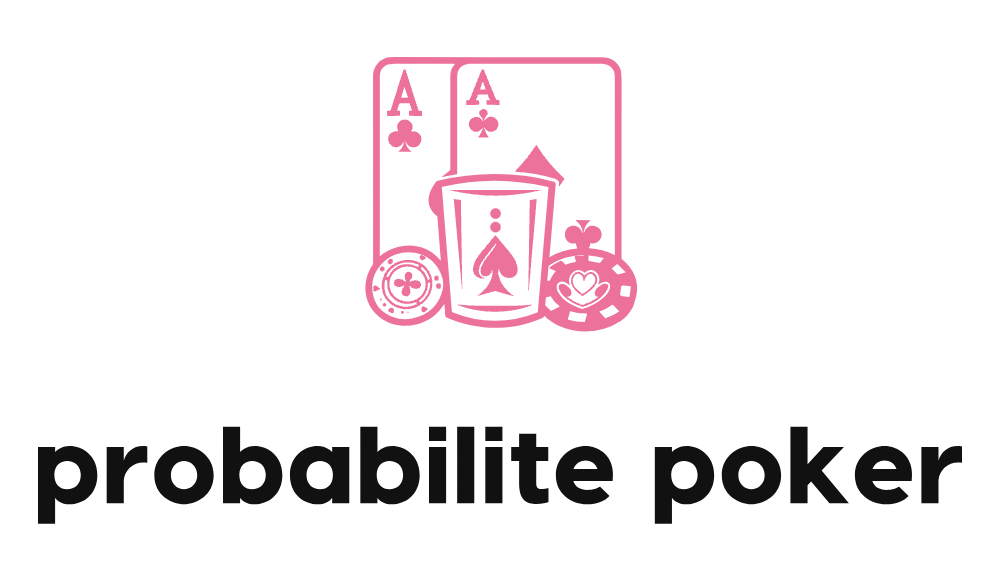In the world of poker, we find ourselves drawn into a realm of strategy, skill, and the ever-elusive element of luck. Whether we are beginners just learning the ropes or seasoned pros honing our craft, the journey of mastering poker is a captivating challenge. Together, we embark on this endeavor, fueled by the thrill of the game and the desire to outwit our opponents.
As we delve into the intricacies of poker, we aim to unravel the complexities of:
- Hand rankings
- Betting strategies
- The psychology of bluffing
By sharing our insights and experiences, we strive to equip ourselves with the tools necessary to elevate our gameplay.
In this article, we will explore various techniques and strategies that cater to both novices and experts, fostering a deeper appreciation for the art of poker.
Let us dive into this exciting journey, where every hand is an opportunity and every game a new adventure.
Understanding Hand Rankings
In poker, it’s crucial to understand the hierarchy of hand rankings to make informed decisions during gameplay. Knowing which hands beat others not only enhances our strategic play but also creates a shared understanding and camaraderie among players at the table. This connection adds to the excitement and enjoyment of the game.
Here are the poker hand rankings from highest to lowest:
-
Royal Flush:
- A, K, Q, J, and 10 of the same suit.
- This is the unbeatable combination.
-
Straight Flush:
- Five consecutive cards of the same suit.
-
Four of a Kind:
- Four cards of the same rank.
-
Full House:
- Three of a kind plus a pair.
-
Flush:
- Five cards of the same suit, not in sequence.
-
Straight:
- Five consecutive cards, not of the same suit.
-
Three of a Kind:
- Three cards of the same rank.
-
Two Pairs:
- Two different pairs.
-
One Pair:
- Two cards of the same rank.
-
High Card:
- When no other hand is made, the highest card plays.
Understanding these rankings helps us play smarter and bond over shared victories and losses. By knowing the hierarchy, players can better evaluate their hands and make strategic decisions during the game.
Developing Effective Betting Strategies
Effective betting strategies in poker are essential for maximizing winnings and minimizing losses during gameplay. When we play poker, it’s crucial to have a clear plan that aligns with our goals at the table. We need to consider several factors:
- Our position
- The size of our stack
- The tendencies of our opponents
By evaluating these elements, we can decide when to bet aggressively or play it safe.
Understanding the importance of betting is paramount in our poker journey. Betting isn’t just about the cards we hold; it’s also about reading the table and making informed decisions. We should adjust our betting strategy based on:
- The flow of the game
- The behavior of other players
Consistency in our approach helps convey confidence and control, allowing us to maintain a strong table presence.
Focus on making smarter bets. By developing these effective betting strategies, we can enhance our skills and enjoy a more rewarding poker experience.
Mastering the Art of Bluffing
Bluffing is a powerful tool in poker that, when mastered, can significantly enhance our ability to control the game and outmaneuver opponents. The art of bluffing is not just about deception; it’s about reading the room and connecting with fellow players. It’s about creating a narrative that others believe, even when the cards in our hands don’t quite match the story we’re telling.
To bluff effectively:
-
Be observant and adaptable.
-
Pay attention to opponents’ betting patterns and body language to sense vulnerability.
-
Maintain consistency in betting behavior to avoid revealing your strategy.
Fostering a sense of camaraderie at the table allows us to better gauge reactions and adjust our tactics. When we bluff successfully, it not only boosts our chip stack but also strengthens our presence in the game, uniting us in the shared thrill of the play.
Utilizing Position to Your Advantage
Understanding the strategic value of our position at the poker table can dramatically influence the outcome of each hand we play. As a collective of poker enthusiasts, knowing when to seize the advantage is crucial. Let’s embrace our positions—early, middle, or late—and capitalize on the opportunities they offer.
In early position:
- We act before most players.
- Play more cautiously.
- Focus on stronger hands.
- Minimize risks.
Transitioning to middle position:
- Gain additional information based on others’ actions.
- Expand our range slightly.
- Remain mindful of those who’ll act later.
- Benefit from the collective knowledge and experience shared among us.
Finally, in late position:
- We’re at a tactical advantage.
- Observing previous actions allows us to make more informed decisions.
- Assert control over the table.
- Play with precision, showcasing our adaptability.
Let’s use position wisely, enhancing our sense of belonging and mastery.
Reading Opponents’ Body Language
Decoding Opponents’ Body Language
Decoding our opponents’ body language can provide us with invaluable insights into their intentions and the strength of their hands. In poker, it’s not just about the cards we hold but also about reading the subtle cues our opponents unconsciously give away.
Key Observations:
- A nervous knee bounce
- A quick glance at their chips
- Breathing patterns
- Eye movements
- The way they handle their cards
Enhancing Observational Skills
By honing our observational skills, we become more connected to the game and our fellow players. This connection creates a deeper sense of belonging at the table.
- Leaning into shared experiences allows us to anticipate moves.
- Making informed decisions relies on trusting our instincts.
Understanding Human Connections
Remember, as we play poker, it’s not just about winning but understanding the intricate human connections that unfold with every hand. Let’s engage in this collective dance of strategy and intuition.
Managing Your Bankroll Wisely
Effective bankroll management is crucial to ensuring we can stay in the game and capitalize on our poker skills over the long term. When we play poker, it’s important to view our bankroll as the lifeline that keeps us connected to the game we love. By managing it wisely, we not only protect ourselves from the ups and downs of poker but also position ourselves to grow and thrive within our community.
Steps for Effective Bankroll Management:
-
Set a Clear Budget:
- Determine an amount that you’re comfortable risking.
- This helps avoid impulsive decisions that could jeopardize financial stability.
-
Stick to Appropriate Games:
- Choose games that align with your bankroll.
- Ensure that even if you hit a losing streak, you’re not knocked out of the game entirely.
Remember: Poker is a marathon, not a sprint. By managing your bankroll wisely, you build a solid foundation for success and forge lasting connections within the poker world.
Enhancing Decision-Making Skills
Sharpening our decision-making skills is essential for gaining a competitive edge and maximizing our success at the poker table. When we play poker, every decision, whether it’s folding or raising, influences the game’s outcome. We need to embrace a mindset that values calculated risks and strategic thinking. It’s about reading the room, understanding our opponents, and acting swiftly yet wisely.
Intuition and Informed Decisions:
- As part of this poker community, we recognize the importance of intuition.
- We also value informed decisions based on patterns and odds.
Enhancing Skills:
To enhance these skills, we should:
- Engage in regular practice.
- Commit to self-reflection.
- Review past games to identify what worked and what didn’t, allowing us to refine our strategy.
Mental Agility and Emotional Control:
- Poker is as much about mental agility as it is about the cards we hold.
- Developing a keen sense of awareness and emotional control keeps us grounded, ensuring our decisions are thoughtful and precise.
Conclusion:
Together, we can elevate our game.
Continuous Learning and Improvement
Commitment to Knowledge and Skill Refinement
We must commit to a relentless pursuit of knowledge and skill refinement to stay ahead in the dynamic world of poker. As a community of poker enthusiasts, we understand that the game evolves, and so must we.
Strategies for Improvement
- By analyzing our play, we uncover patterns and identify areas for improvement.
- Watching seasoned players and learning from their strategies helps us adapt our own techniques.
- Embrace feedback, knowing it’s a tool for growth rather than criticism.
Engagement and Learning
Reading books and engaging in forums allows us to exchange ideas and share insights. It’s through these interactions that we find support and encouragement, fostering a sense of belonging among those who play poker.
Participating in Tournaments
Participating in tournaments challenges us, pushing our boundaries and sharpening our skills.
Commitment to Growth
Let’s commit to self-improvement and continuous learning. Together, we’ll elevate our game, ensuring we’re always ready for the next hand. In poker, as in life, growth happens when we step outside our comfort zone.
What are some common psychological tricks used by professional poker players?
We know that professional poker players often use psychological tricks to gain an advantage at the table. Some common tactics include:
-
Bluffing: This involves making opponents doubt their own hands by pretending to have a stronger hand than actually held.
-
Maintaining a strong poker face: This helps in hiding emotions and keeping opponents guessing about the player’s hand.
-
Manipulating betting patterns: Players use this to confuse opponents and make it difficult for them to predict the player’s strategy.
These strategies can help players:
- Control the flow of the game.
- Influence their opponents’ decisions.
- Ultimately lead to more successful outcomes in poker matches.
How can online poker platforms differ from live poker games in terms of strategy?
Online Poker vs. Live Games
Online poker platforms can differ significantly from live games, particularly in terms of strategy. In the digital realm:
- Faster Pace: The pace is faster, and players have less time to make decisions.
- Diverse Opponent Pool: Online games often feature a larger pool of opponents with varying skill levels.
Key Strategies for Online Poker
- Quick Adjustment: Adapting quickly to different playing styles and exploiting weaknesses is crucial.
- Skill Enhancement: Engaging in the virtual environment can enhance overall poker skills.
- Broaden Understanding: Playing online broadens our understanding of the game.
By focusing on these strategies, players can effectively navigate the challenges of online poker and improve their performance.
What are the legal considerations for playing poker in different regions or countries?
When playing poker in different regions or countries, it’s crucial to be aware of the legal considerations. Laws surrounding poker can vary widely, impacting where and how we can play.
Researching the legal landscape beforehand can help us avoid any potential issues and ensure we’re playing within the boundaries of the law.
Staying informed and respecting local regulations is key to enjoying our poker games without any legal hassles.
Conclusion
Congratulations on Completing This Guide to Mastering Poker!
By understanding the following key concepts, you are well on your way to becoming a skilled poker player:
-
Hand Rankings: Knowing which hands are the strongest and how they compare to others is fundamental.
-
Effective Strategies: Develop strategies that adapt to different opponents and situations.
-
Mastering Bluffing: Learn when and how to bluff effectively to gain an advantage over your opponents.
-
Utilizing Position: Use your position at the table to make more informed decisions.
Additional Tips for Success:
- Read opponents’ body language to gain insight into their potential hands.
- Manage your bankroll wisely to ensure you can play sustainably over the long term.
- Continuously improve your skills through practice and study.
With practice and dedication, you can enhance your decision-making abilities and excel in the game of poker.
Keep Learning, Keep Playing, and Enjoy the Journey to Poker Mastery!

